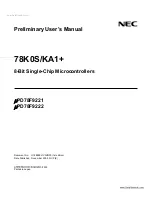
19
LTC3729
sn3729 3729fas
The phase detector used is an edge sensitive digital type
which provides zero degrees phase shift between the
external and internal oscillators. This type of phase detec-
tor will not lock up on input frequencies close to the
harmonics of the VCO center frequency. The PLL hold-in
range,
∆
f
H
, is equal to the capture range,
∆
f
C:
∆
f
H
=
∆
f
C
=
±
0.5 f
O
(250kHz-550kHz)
The output of the phase detector is a complementary pair
of current sources charging or discharging the external
filter network on the PLLFLTR pin. A simplified block
diagram is shown in Figure 7.
APPLICATIO S I FOR ATIO
W
U
U
U
Figure 7. Phase-Locked Loop Block Diagram
EXTERNAL
OSC
2.4V
R
LP
10k
C
LP
OSC
DIGITAL
PHASE/
FREQUENCY
DETECTOR
PHASE
DETECTOR
PLLIN
3729 F07
PLLFLTR
50k
If the external frequency (f
PLLIN
) is greater than the oscil-
lator frequency f
0SC
, current is sourced continuously,
pulling up the PLLFLTR pin. When the external frequency
is less than f
0SC
, current is sunk continuously, pulling
down the PLLFLTR pin. If the external and internal
frequencies are the same but exhibit a phase difference,
the current sources turn on for an amount of time corre-
sponding to the phase difference. Thus the voltage on the
PLLFLTR pin is adjusted until the phase and frequency of
the external and internal oscillators are identical. At this
stable operating point the phase comparator output is
open and the filter capacitor C
LP
holds the voltage. The
LTC3729 PLLIN pin must be driven from a low impedance
source such as a logic gate located close to the pin. When
using multiple LTC3729’s for a phase-locked system, the
PLLFLTR pin of the master oscillator should be biased at
a voltage that will guarantee the slave oscillator(s) ability
to lock onto the master’s frequency. A DC voltage of 0.7V
to 1.7V applied to the master oscillator’s PLLFLTR pin is
recommended in order to meet this requirement. The
resultant operating frequency will be approximately 500kHz.
The loop filter components (C
LP
, R
LP
) smooth out the
current pulses from the phase detector and provide a
stable input to the voltage controlled oscillator. The filter
components C
LP
and R
LP
determine how fast the loop
acquires lock. Typically R
LP
=10k
Ω
and C
LP
is 0.01
µ
F to
0.1
µ
F.
Minimum On-Time Considerations
Minimum on-time t
ON(MIN)
is the smallest time duration
that the LTC3729 is capable of turning on the top MOSFET.
It is determined by internal timing delays and the gate
charge required to turn on the top MOSFET. Low duty cycle
applications may approach this minimum on-time limit
and care should be taken to ensure that:
t
V
V
f
ON MIN
OUT
IN
( )
<
( )
If the duty cycle falls below what can be accommodated by
the minimum on-time, the LTC3729 will begin to skip
cycles resulting in nonconstant frequency operation. The
output voltage will continue to be regulated, but the ripple
current and ripple voltage will increase.
The minimum on-time for the LTC3729 is approximately
100ns. However, as the peak sense voltage decreases the
minimum on-time gradually increases. This is of particu-
lar concern in forced continuous applications with low
ripple current at light loads. If the duty cycle drops below
the minimum on-time limit in this situation,
a significant amount of cycle skipping can occur with
correspondingly larger current and voltage ripple.
If an application can operate close to the minimum on-
time limit, an inductor must be chosen that has a low
enough inductance to provide sufficient ripple amplitude
to meet the minimum on-time requirement.
As a general
rule, keep the inductor ripple current of each phase equal
to or greater than 15% of I
OUT(MAX)
/N at V
IN(MAX)
.










































